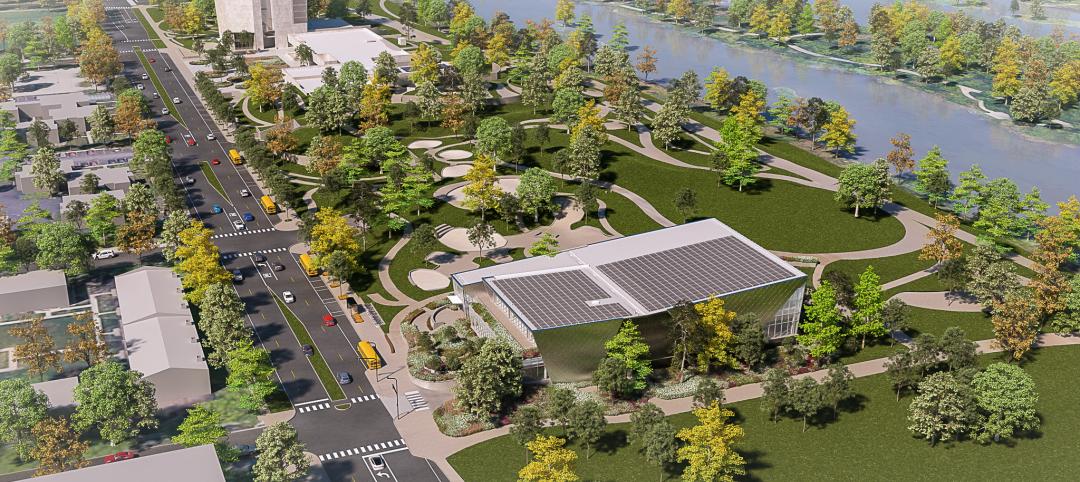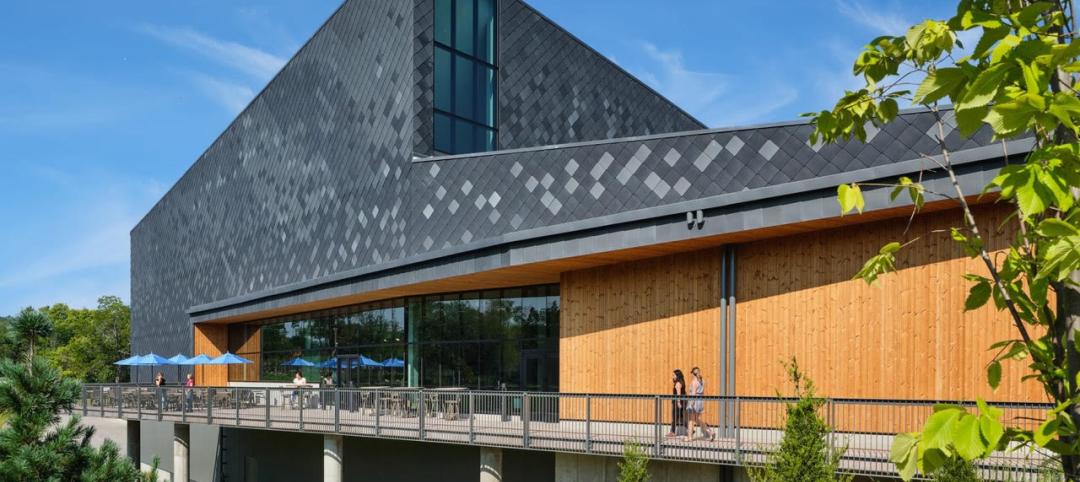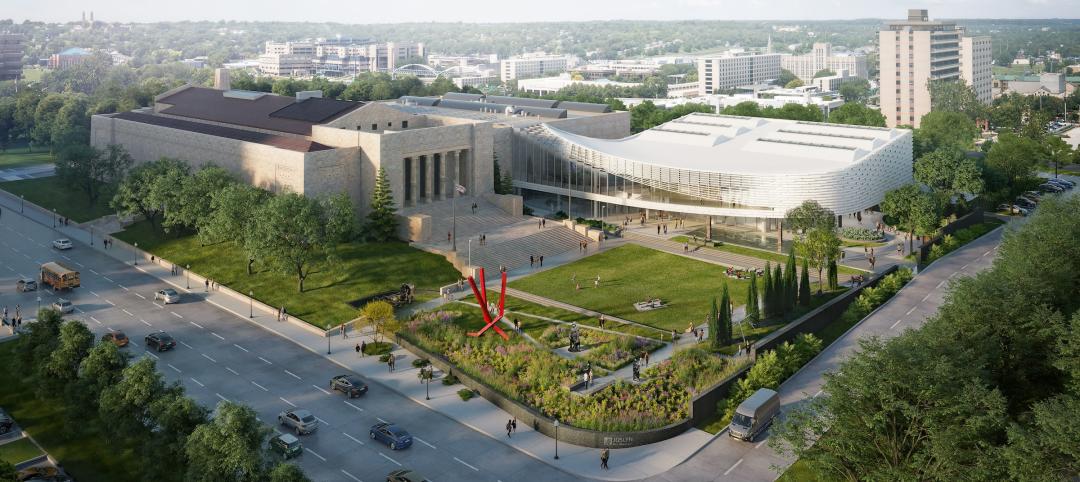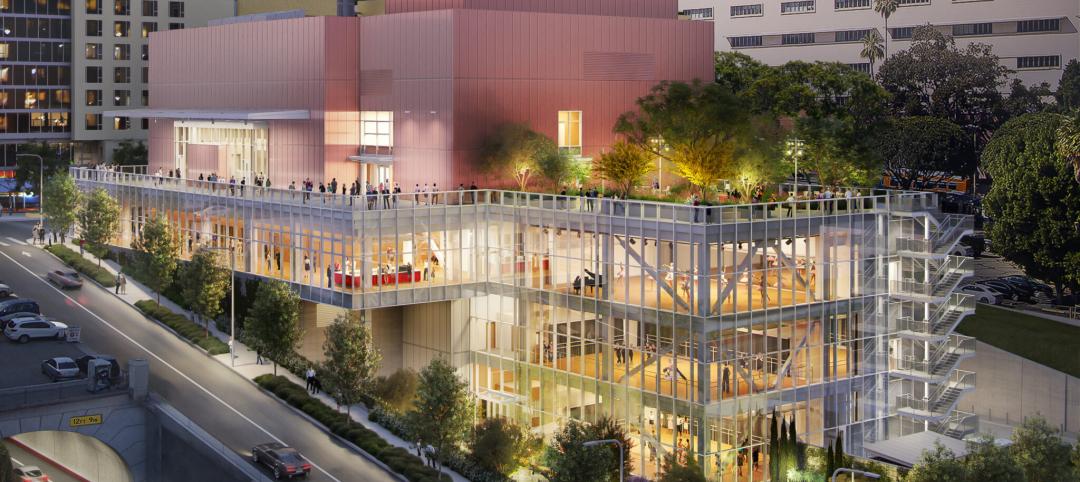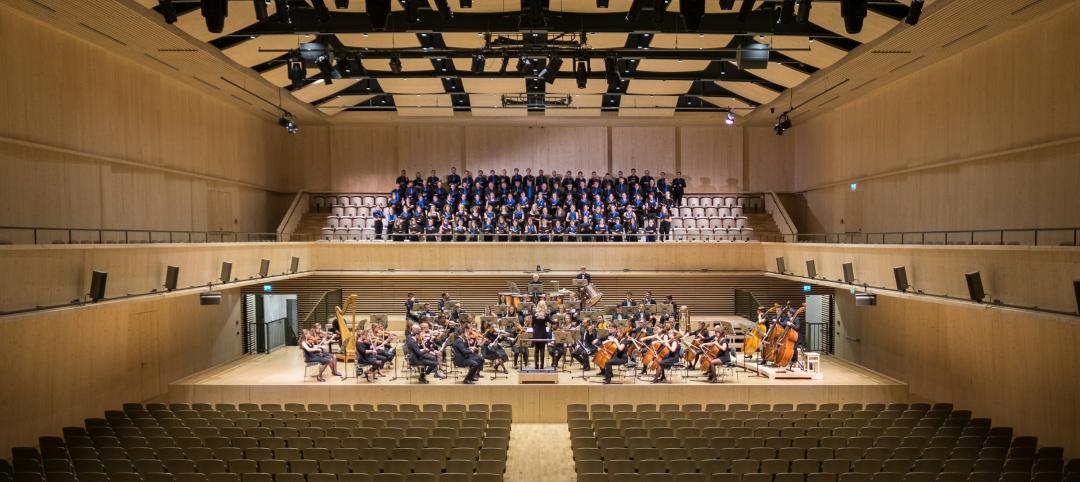
As part of a major revitalization of downtown Durham, N.C., locally based Capitol Broadcasting Company decided to transform the American Tobacco Company's derelict 16-acre industrial plant, which symbolized the city for more than a century, into a lively and attractive mixed-use development.
 |
| PHOTO: CAPITOL BROADCASTING COMPANY |
Although tearing down and rebuilding the property would have made more economic sense, the greater goal of building up downtown Durham and preserving history prevailed. Consequently, the city's largest ever historic preservation project got under way with a major environmental cleanup of the area.
Now, instead of blight, the bright new development features residential, office, restaurant, entertainment, and retail.
To preserve the historic nature of the original American Tobacco plant, only building materials that were available during the plant's lifetime (1874-1987) were used. Where new concrete had to be poured next to existing concrete, it was stressed and stained to match. Similarly, specialty brick masons were brought in to reconstruct old brickwork and craft new brick elements with the same designs and patterns found in the original buildings.
 |
| PHOTO: BOB HUGHES PHOTOGRAPHY |
One welcome feature is the incorporation of water throughout the project. Working with water feature consultant W.P. Law Inc., the Building Team, led by Atlanta architecture firm Smallwood, Reynolds, Stewart, Stewart & Associates, designed a scenic river, starting at the north end of the site and running south along the old loading docks and train tracks. Toward the center of the campus, the river splits into a beautiful, multi-level pool as it runs through a sprawling, green park.
Ultimately, the waters descend into the Fowler Courtyard via a refreshing waterfall, varying in height from three feet to 15 feet. A hidden reservoir then utilizes three 75-hp pumps to send water a quarter mile upstream, back to its headwaters.
Only trees and plants common to the community during the tobacco plant's operation were chosen for the landscaping. So as not to obstruct the project's architectural and scenic features, fewer and larger trees were selected.
 |
| Water features are significant additions to the American Tobacco Company’s grounds. The river runs along the lawn and under a bridge, past “ruins” constructed of old concrete slabs (left). The river terminates at the Fowler Courtyard, where it’s pumped back upstream to its headwaters. PHOTO: JEAN C. ALDY |
Another nature-friendly feature involved converting the old railroad tracks into bike trails for a “Rails to Trails” program.
Project guidelines stipulated that new buildings on the site had to conform to façade guidelines and could not obstruct views of the old buildings. The original water tower was preserved, while an amphitheater and stage were built below.
Local artists were commissioned to design art sculptures utilizing reclaimed machinery and materials from the old plant.
As is the case in many historic projects, no construction documents were found, so structural engineers from Morrison Engineers were on site to document existing structural conditions during demolition and reinforce structures as needed.
On the mechanical side, mechanical engineer Stantec Consulting largely kept the original plant's exposed mechanical and plumbing systems. The Building Team also went back in time to find ways to cool the buildings, utilizing the facility's extraordinarily thick walls and full basements to retain coolness.
At 1.5 million sf, the American Tobacco Project ranks as the largest redevelopment of a tobacco mill in North Carolina.
“It's a fantastic intervention in a decaying urban community,” said BD+C Renovation Awards judge Robert L. Selby, FAIA, Associate Director for Graduate Studies at the University of Illinois School of Architecture.
Related Stories
Cultural Facilities | Apr 8, 2024
Multipurpose sports facility will be first completed building at Obama Presidential Center
When it opens in late 2025, the Home Court will be the first completed space on the Obama Presidential Center campus in Chicago. Located on the southwest corner of the 19.3-acre Obama Presidential Center in Jackson Park, the Home Court will be the largest gathering space on the campus. Renderings recently have been released of the 45,000-sf multipurpose sports facility and events space designed by Moody Nolan.
Cultural Facilities | Mar 27, 2024
Kansas City’s new Sobela Ocean Aquarium home to nearly 8,000 animals in 34 habitats
Kansas City’s new Sobela Ocean Aquarium is a world-class facility home to nearly 8,000 animals in 34 habitats ranging from small tanks to a giant 400,000-gallon shark tank.
Cultural Facilities | Mar 26, 2024
Renovation restores century-old Brooklyn Paramount Theater to its original use
The renovation of the iconic Brooklyn Paramount Theater restored the building to its original purpose as a movie theater and music performance venue. Long Island University had acquired the venue in the 1960s and repurposed it as the school’s basketball court.
Museums | Mar 25, 2024
Chrysler Museum of Art’s newly expanded Perry Glass Studio will display the art of glassmaking
In Norfolk, Va., the Chrysler Museum of Art’s Perry Glass Studio, an educational facility for glassmaking, will open a new addition in May. That will be followed by a renovation of the existing building scheduled for completion in December.
Museums | Mar 11, 2024
Nebraska’s Joslyn Art Museum to reopen this summer with new Snøhetta-designed pavilion
In Omaha, Neb., the Joslyn Art Museum, which displays art from ancient times to the present, has announced it will reopen on September 10, following the completion of its new 42,000-sf Rhonda & Howard Hawks Pavilion. Designed in collaboration with Snøhetta and Alley Poyner Macchietto Architecture, the Hawks Pavilion is part of a museum overhaul that will expand the gallery space by more than 40%.
Performing Arts Centers | Feb 27, 2024
Frank Gehry-designed expansion of the Colburn School performing arts center set to break ground
In April, the Colburn School, an institute for music and dance education and performance, will break ground on a 100,000-sf expansion designed by architect Frank Gehry. Located in downtown Los Angeles, the performing arts center will join the neighboring Walt Disney Concert Hall and The Grand by Gehry, forming the largest concentration of Gehry-designed buildings in the world.
Giants 400 | Feb 8, 2024
Top 20 Public Library Construction Firms for 2023
Gilbane Building Company, Skanska USA, Manhattan Construction, McCownGordon Construction, and C.W. Driver Companies top BD+C's ranking of the nation's largest public library general contractors and construction management (CM) firms for 2023, as reported in Building Design+Construction's 2023 Giants 400 Report.
Giants 400 | Feb 8, 2024
Top 30 Public Library Engineering Firms for 2023
KPFF Consulting Engineers, Tetra Tech High Performance Buildings Group, Thornton Tomasetti, WSP, and Dewberry top BD+C's ranking of the nation's largest public library engineering and engineering/architecture (EA) firms for 2023, as reported in Building Design+Construction's 2023 Giants 400 Report.
Giants 400 | Feb 8, 2024
Top 50 Public Library Architecture Firms for 2023
Quinn Evans, McMillan Pazdan Smith, PGAL, Skidmore, Owings & Merrill, and Gensler top BD+C's ranking of the nation's largest public library architecture and architecture/engineering (AE) firms for 2023, as reported in Building Design+Construction's 2023 Giants 400 Report.
Giants 400 | Feb 8, 2024
Top 35 Performing Arts Center and Concert Venue Construction Firms for 2023
The Whiting-Turner Contracting Company, Holder Construction, McCarthy Holdings, Clark Group, and Gilbane Building Company top BD+C's ranking of the nation's largest performing arts center and concert venue general contractors and construction management (CM) firms for 2023, as reported in Building Design+Construction's 2023 Giants 400 Report.


